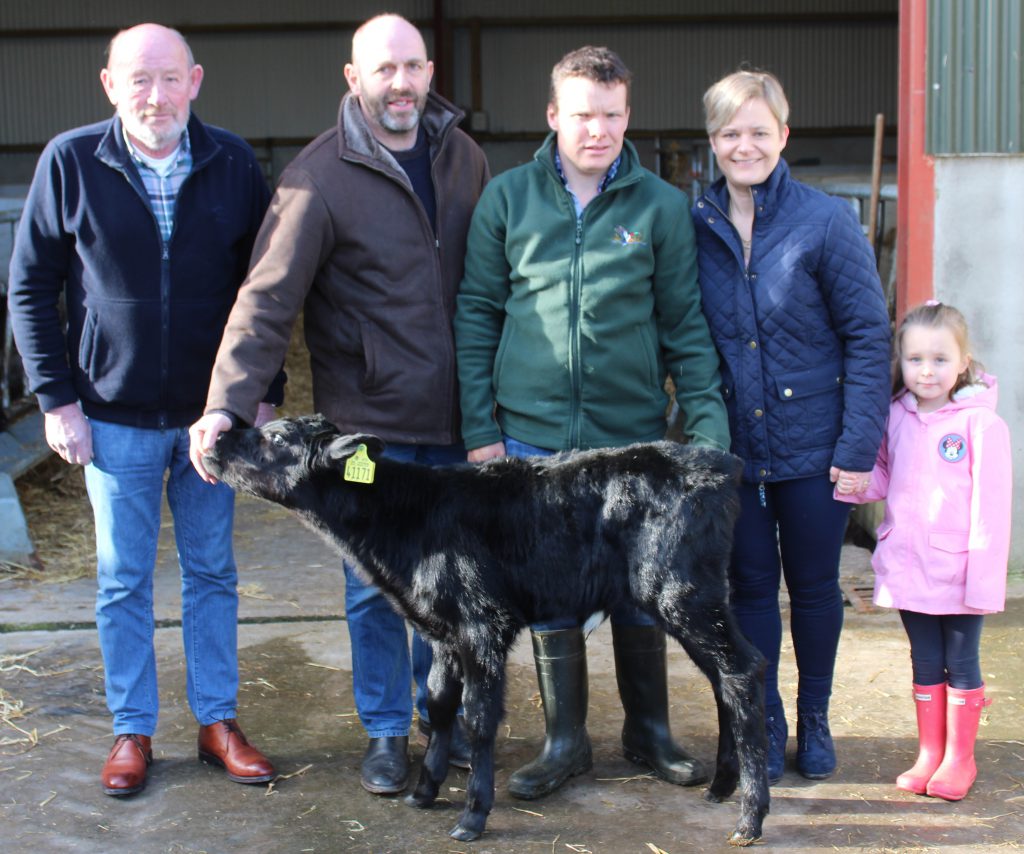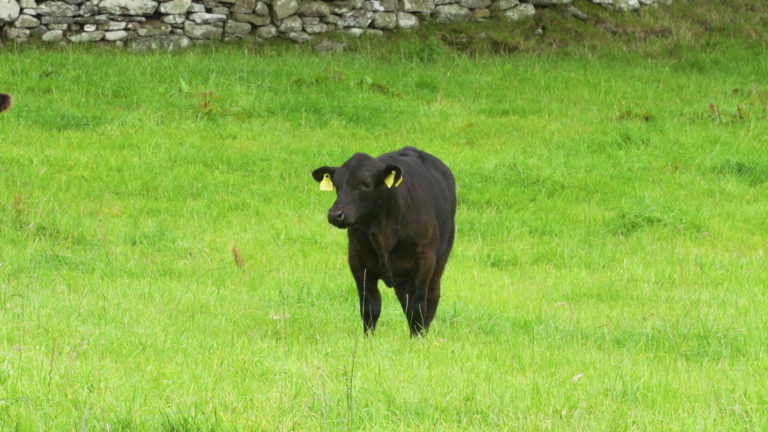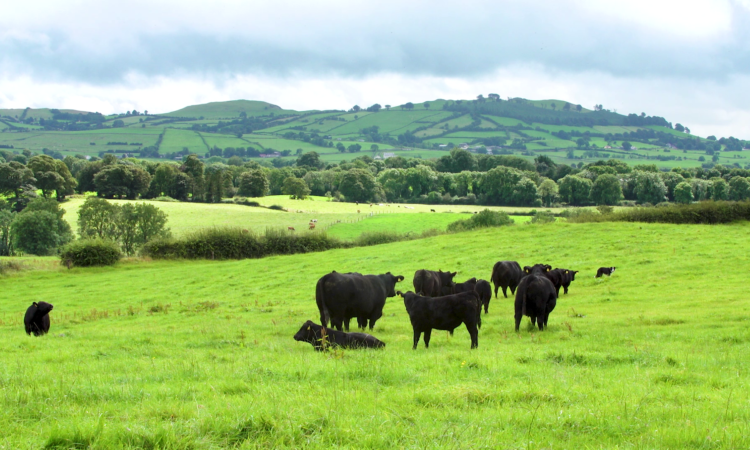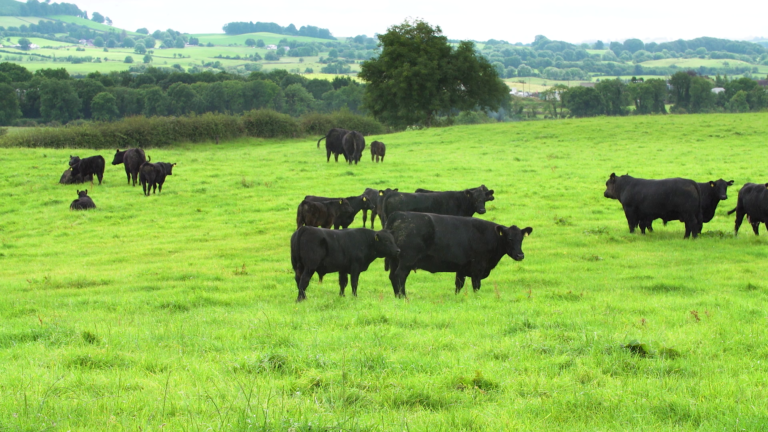The Aberdeen Angus Society of the UK and Ireland has a new president – Co. Tyrone man Alan Cheney. He takes over the role at a time when new science and new technology is making a real mark within the world of cattle breeding.
He fully recognises that DNA fingerprinting and genomics, in tandem with the use of sexed semen, are opening up new opportunities for dairy and beef farmers in equal measure.
“These developments are helping to take the uncertainty out of cattle breeding. For example, the availability of sexed semen is allowing milk producers to get the high-quality replacements they need from a smaller number of cows,” he said.
“In turn this is allowing farmers to use a higher proportion of high-quality beef semen within their herds. This is doing two things.
“In the first instance, it is reducing the number of black and white bull calves within the dairy sector. But, more importantly, it is allowing milk producers to add real value to their calf crop across the board.”
Cheney went on to point out that genetics’ research will also help to identify heritable traits that will allow both dairy and beef farmers to add further to the value of the beef calves they produce on an annual basis.
“Aberdeen Angus breeders are playing their part in making use of these new technologies.
“One of my priorities as president of the society will be to communicate the commitment Irish Aberdeen Angus breeders are making to meet the needs of dairy and suckler farmers in equal measure.
“The quality of Aberdeen Angus beef is renowned the world over. That goes without saying. However, pedigree breeders are totally committed to providing sires that meet the need for calving ease, daily liveweight gains and carcase quality in equal measure.”
Cheney is also keen to further enhance the prestige associated with the ‘Aberdeen Angus Beef’ brand.
“It is our greatest asset,” he stressed. “I want to further develop its significance both at farm and consumer level during the period ahead.”
Given this background, Cheney is reminding farmers who wish to avail of the various Aberdeen Angus quality beef programmes that only calves born to pedigree sires will be eligible for the schemes.
“A lot of work has gone in to genetically fingerprinting every pedigree Aberdeen Angus sire in Ireland. Since January 2019, all Aberdeen Angus bulls submitted for registration to the society must be genetically identified prior to the actual registration process itself taking place.
“Given these developments, it will simply require the meat plants to take a very small tissue sample from animals submitted for slaughter and to have this DNA-tested in order to verify if their sires were, or were not, pedigree Aberdeen Angus bulls.
“The meat plants involved in all the Aberdeen Angus quality beef schemes and the supermarkets are totally committed to using the sire database in this way. This means that all the calves born this year will be subject to this testing procedure at point of slaughter.”
The current Aberdeen Angus quality bonuses are worth up to an additional 20c/kg or approximately €60/carcass on all in-spec animals.
“All the meat plants will continue to visually assess cattle submitted for the Aberdeen Angus schemes. But simply checking for the absence of horns and the other visible characteristics of Aberdeen Angus cross cattle is only the beginning of a process.
“Genetic testing will also be carried out,” he added.
The Aberdeen Angus Society president made these comments while visiting the dairy farm of Stewart Fairbairn, who milks 80 Holstein cows with his wife Julie near Cootehill in Co. Cavan.
The herd is split into spring and autumn-calving groups.

Aberdeen Angus Society president Alan Cheney (second left) recently visited the Cootehill dairy farm of Stewart (middle) and Julie Fairbairn (second right) to view a selection of this year’s Aberdeen Angus cross calves. They were joined by Mack Crowe (left) immediate past president of the Irish Aberdeen Angus Association and five year-old Robyn Fairbairn
Stewart uses quality pedigree Aberdeen Angus bulls on all cows and heifers which are not required for the production of herd replacements.
“The Aberdeen Angus cross calves are born with lots of vigour. And we have very few calving difficulties. “The Angus calves are very easily reared and they put a bit of shape to beef cattle produced from black and white cows,” Stuart explained.
“I have the scope to rear the calves trough to about eight months-of-age, after which they are sold on.
“They always secure a premium price in the market because of their quality,” he added.
Alan Cheney is quick to point to the many challenges faced by Irish beef producers over recent months.
“Farmers need to get every euro they can from the market. One way of doing this is to qualify for the various Aberdeen Angus quality beef schemes.
“But, looking to the future, this can only be assured if producers are working with stock sired by pedigree bulls” he concluded.
To view available pedigree breeding stock, just click here


